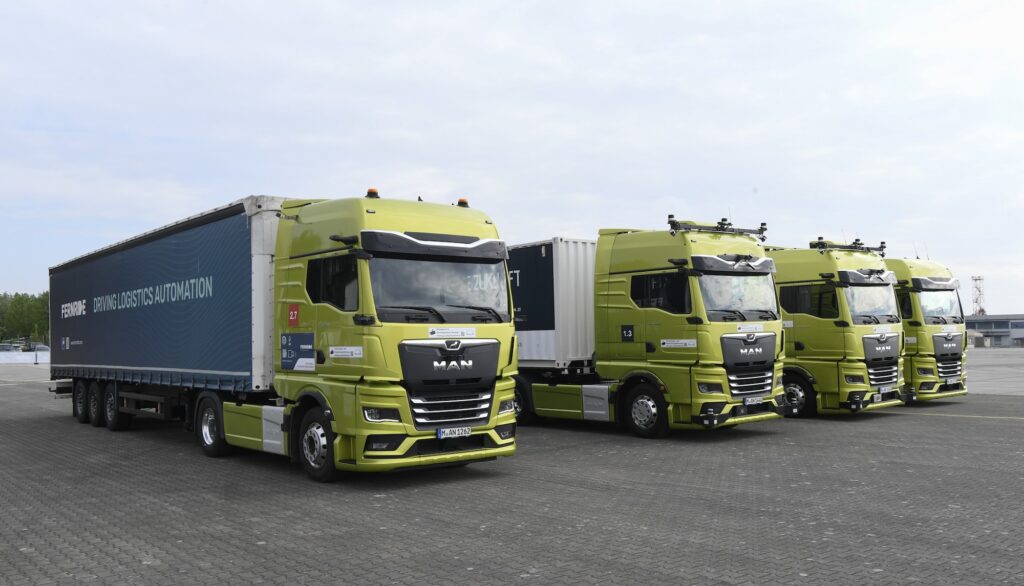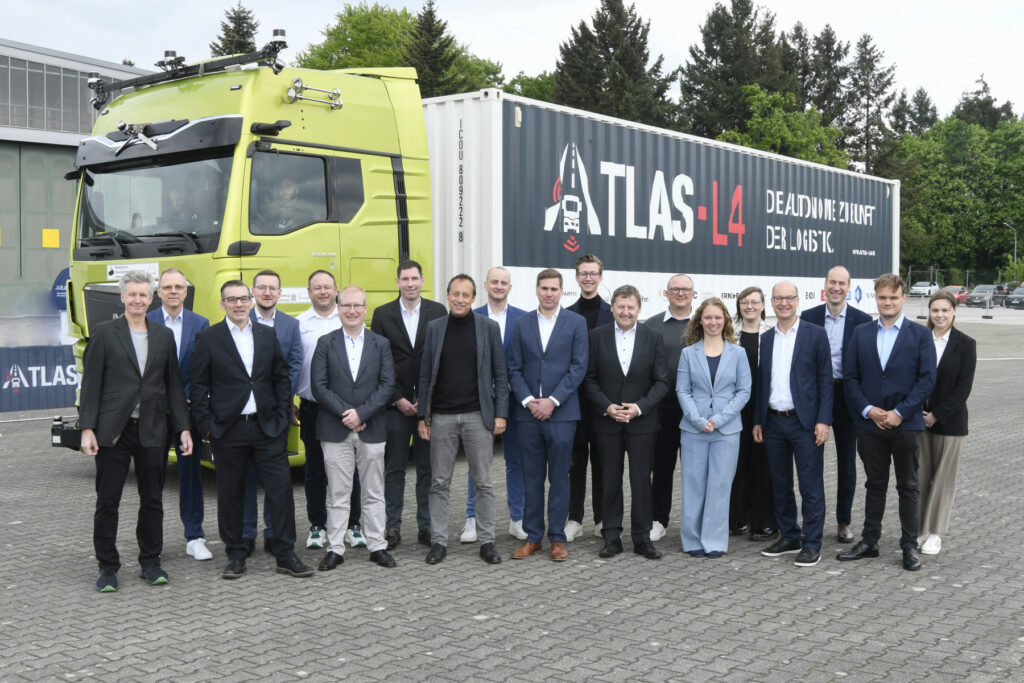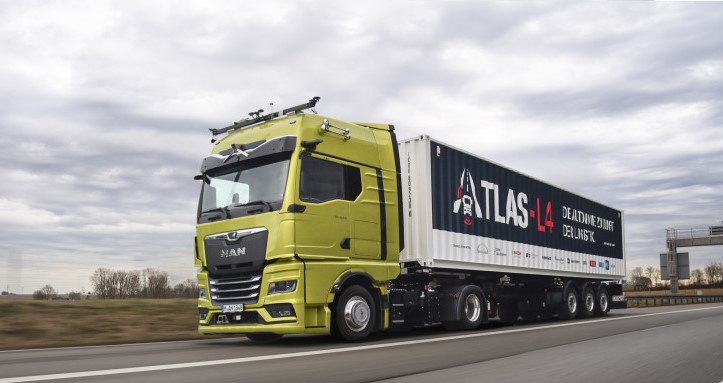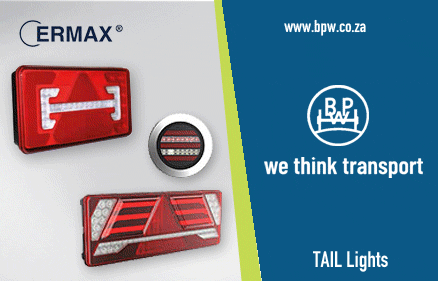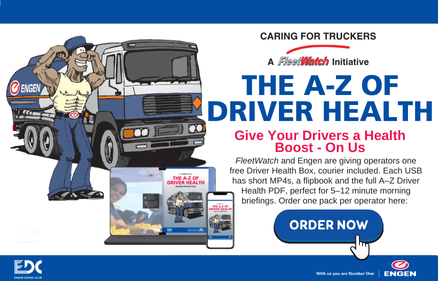After three years of intensive collaboration, twelve project partners from across German industry, academia, infrastructure and software development have successfully concluded the ATLAS-L4 research and development project (Automated Transport between Logistics Centers on Level 4 Motorways). Around 150 engineers have helped bring autonomous trucking in real-world road transport to Germany’s logistics sector.
The consortium includes: MAN Truck & Bus, Knorr-Bremse, Leoni, Bosch, Fernride, BTC Embedded Systems, Fraunhofer AISEC, Technical University of Munich, Technical University of Braunschweig, TÜV SÜD, Autobahn GmbH and the Würzburg Institute of Transport Sciences (WIVW GmbH).
A clear goal and strong support
Backed by the Federal Ministry for Economic Affairs and Climate Protection, the ±R1.3-billion (€59.1-million) project set out to bring a Level 4 automated truck onto German motorways for hub-to-hub transport. This was made possible by the 2021 legislation enabling driving on defined routes under technical supervision placing Germany at the forefront of this global shift.
“Together with our partners, we’ve achieved a robust, industrialisable concept for autonomous hub-to-hub transport,” says Dr Frederik Zohm, executive board member for Research and Development at MAN Truck & Bus. “Developing and integrating safety-critical redundant systems – such as steering, braking and power supply – required deep interdisciplinary collaboration. With ATLAS-L4, we’ve proven that autonomous trucking is feasible.”
The project kicked off on 1 January 2022. In April 2024, the Federal Motor Transport Authority granted the first Level 4 test approval for a commercial vehicle, paving the way for the inaugural motorway drive – accompanied by Federal Transport Minister Volker Wissing. All tests included an on-board safety driver.
Over time, the vehicle’s automation software was regularly updated, refined and tested in real-world conditions to ensure safe and reliable operation.
What’s next?
While some technical challenges remain before series production, the project has laid essential groundwork. “We’ve demonstrated the practical feasibility of autonomous trucks,” says project coordinator Sebastian Völl of MAN Truck & Bus. “These concepts will now inform the next phase of development.”
Autonomous hub-to-hub logistics holds enormous promise: improved efficiency, reduced congestion and accidents and a potential remedy to the industry-wide shortage of truck drivers. Germany alone is short of approximately 100 000 drivers.
Objectives met – and a blueprint for the future
According to Zohm: “All core goals of ATLAS-L4 were achieved, including redundant safety systems, a validation framework and a control centre for technical supervision, were all developed and deployed. The project addressed Level 4-specific safety concerns, including cybersecurity – such as encrypted, authentic communication – and functional safety measures like redundancy and degradation protocols.”
On 7–8 May 2025, around 200 guests – including representatives from the Federal Ministry – attended a final project presentation at the ADAC Mobility Test Centre in Penzing. Highlights included motorway driving demos, a 1 000 m² exhibition and technical presentations.
“The outcome is a technology prototype that serves as a foundation for future development and series production,” concludes Vohl.
Editors note: The success of the ATLAS-L4 project carries important implications for South Africa’s trucking and logistics sectors, which face many of the same challenges seen in Europe – particularly a persistent driver shortage, the need to improve road safety and the pressure to streamline long-distance freight operations.
By demonstrating the viability of Level 4 autonomous trucking on public motorways, the German project sets a benchmark that South Africa can look to as it explores smart transport solutions within its own logistics evolution. Autonomous hub-to-hub transport could help optimise freight corridors between key industrial hubs such as Gauteng, Durban and Cape Town, reduce human error-related accidents and enable round-the-clock operations, all while paving the way for local innovation and investment in intelligent transport systems.
Partner contributions at a glance:
- MAN Truck & Bus led system development and integrated all components. MAN also handled data transmission and commissioned the legally required control center.
- Knorr-Bremse, global leader in braking systems, delivered a redundant brake architecture with steer-by-brake technology.
- LEONI ensured a fault-tolerant power supply and electronic cable distribution.
- Bosch developed a fault-tolerant steering system compliant with SAE Level 4.
- FERNRIDE, a start-up specialising in autonomous logistics, tested teleoperation capabilities for remote vehicle oversight.
- BTC Embedded Systems focused on scenario-based and simulation-led testing for critical driving situations.
- Fraunhofer AISEC extended its cybersecurity expertise to automated trucks, developing comprehensive protection strategies.
- TU Braunschweig’s Institute of Automatic Control created safe operation protocols and self-awareness systems for the trucks.
- TU Munich’s Chair of Automotive Engineering contributed to vehicle dynamics and supervision interface design.
- TÜV SÜD tested vehicles and simulation environments, contributing to approval procedures.
- Autobahn GmbH, responsible for route approvals, developed a digital operating zone management system.
- WIVW GmbH built a teleoperation workstation coupled with simulation, translating requirements into working models.
Ends

